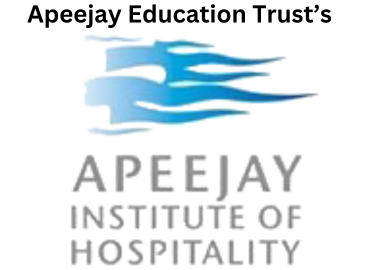
It is believed that a picture is worth a thousand words. Whether you are a newbie or a seasoned professional in revenue management for the hospitality industry, do read on.
To master the hospitality revenue management system, all you have to do is draw an imaginary triangle with pricing, distribution, and inventory as sides. To maximize revenue and profitability, you will have to be alert and flexible to keep your triangle intact. This art, which is also a skill, is best taught at the Apeejay Institute of Hospitality.
Many business houses in the hospitality industry use hotel revenue management in a strategic manner to escalate their profitability and revenue. The key elements of this process are dynamic pricing, the right inventory to manage the distribution channel, and due consideration of the other factors that impact demand for the service.
Regardless of size, hotels, resorts, and other commercial establishments that provide accommodations are part of the hospitality industry and they all are constantly striving to put the best hotel revenue management theory into practice. There are constant challenges in terms of competition, demand vs supply, and other market dynamics. Thankfully, learning about all this is easy; all you need to do is log in to the link of the hotel revenue management course, offered by Apeejay Institute of Hospitality. Here’s all the information that you need about the course and the hotel revenue management course fee.
Key aspects of hotel revenue management:
Pricing: Having dynamic pricing, includes tweaking room rates taking into consideration demand, capitalizing on seasons, giving importance to local events, and of course competition strategy.
Forecasting Demand: Hospitality revenue management aims to raise profits by analyzing data, booking patterns, and being aware of market trends that can forecast future demand for your service.
Inventory Control: The number of rooms, availability, and correct analysis to avoid overbooking and underbooking are of prime importance to maintain high profitability.
Channel Management: This includes online travel agencies (OTAs), direct bookings, and other distribution partners that help to minimize costs, and generate high revenue management for the hospitality industry that you operate in.
Distinct Segmentation and Managing Special Target Audiences: By analyzing your data, it is easy to identify and target specific market segments with a tailor-made price strategy.
Focus on Competition: To create a strong hospitality revenue management model, one has to learn how to out-bid the immediate rivals, especially in the pricing criteria.
Brand Promotions: This must include attractive package deals for the services offered and loyalty programs to ensure repeat clients.
Updated Technology: In the dynamic world of technology and the tools that it offers innovatively regularly, you must see it as an investment for progress and have the best hospitality revenue management practice. Data Analysis is used for making decisions about pricing, promotion, and distribution strategy.
How well you take care of the above list is what will decide how you can learn to be one of the best organization
For revenue management in the hospitality industry, taking care of the above list is important. The best lubricant to oil this machinery is your workforce, both within and outside your organization. How best to operate the communications channels is something that the professionals at Apeejay Institute of Hospitality, teach you in the hotel revenue management course offered. Click here to learn about the hotel revenue management course fee.
Now that you know how to feel the pulse of revenue management for hospitality industry, the picture in your mind can be easily manifested.

 Apeejay Institute of Hospitality, established in the year 2007, is committed to bridging the gap between academics and industry, by providing quality human resources and infrastructure to the hospitality business. This promise comes from a Group that has been closely associated, for almost fifty years, with both education and hospitality in the country-the Apeejay Surrendra Group.
Apeejay Institute of Hospitality, established in the year 2007, is committed to bridging the gap between academics and industry, by providing quality human resources and infrastructure to the hospitality business. This promise comes from a Group that has been closely associated, for almost fifty years, with both education and hospitality in the country-the Apeejay Surrendra Group.